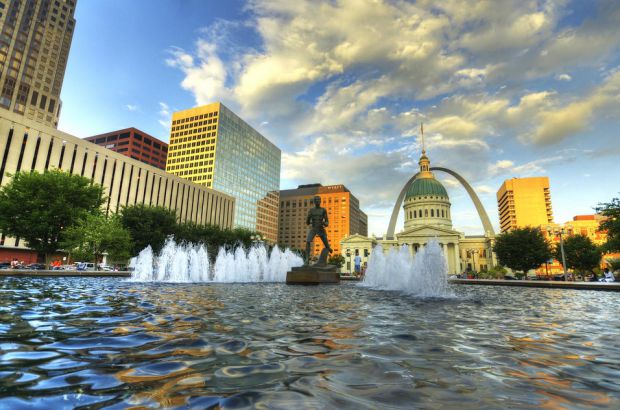When your house is on fire
Of course, none of us think of ourselves as climate deniers. But something makes us flinch from bad news, hard conversations, and uncomfortable conclusions.

“Transition is inevitable. Justice is not.”- Quinton Sankofa, Movement Generation
Climate disruption isn’t an “environmental” issue in the usual sense. It’s a basic matter of social and economic justice.
The impacts of climate change generally hit first and worst on those who do the least to cause it and are the most vulnerable to the consequences. And the primary cause of climate change–fossil fuel extraction, transportation and combustion–takes a heavy toll on the health and well-being of communities of color, indigenous people, and low-income communities.
So addressing the climate challenge means more than emission reduction, more than simply mitigating environmental impacts of our economic and energy systems. It means rebuilding those systems to deliver sustainable prosperity–economic health that works for a long time and a lot more people.
A clean energy economy can offer that promise. It can produce economic vitality in the present without destroying the future. It can produce shared prosperity, by reducing the concentrated economic power of fossil fuel suppliers, investing in communities, and increasing reliance on abundant local resources.
But this transition won’t be easy or quick. It’s a huge social and economic shift, and that always poses challenges, particularly for those who live closest to the economic margins and those who rely on fossil fuel industries for work. The clean energy transition is about shrinking carbon footprints, but it won’t work unless it’s also about growing:

By: Gregg Small on
We're gaining momentum towards 100% clean energy. Here's how we're laying the groundwork, and what comes next.

By: Joëlle Robinson on
What makes people take an afternoon or a day off work just to say NO to what would be the largest oil-by-rail terminal in North America? What would make them drive hours through the night to attend a public hearing? For one thing, love for their great-great grandchildren.

By: Vlad Gutman-Britten on
The good news is that we know how to build ourselves a clean energy future, what we need to tackle climate change. The bad news is just that it won't happen by itself.

By: Gregg Small on
Good jobs, vital communities and clean energy are the way forward as we transition away from the pollution, health risks and climate damage of the fossil fuel era. Majora Carter inspired us with storytelling at Climate Solutions' annual breakfast.

By: KC Golden on
The fossil fuel age's days are numbered... but not just any number will do. We don’t have time to waste on prolonging our transition to clean energy. An incoming administration full of oil men won't be able to stop the transition—but we're still progressing too slowly to avoid catastrophic climate disruption.

By: KC Golden on
It has become obvious that we need to find new and better ways to align good climate policy with fairness, inclusion, and solutions that work for everyone. If we don’t, fossil fuel interests will fend off the transition we need by capitalizing on the same insecurity and fear that won Trump the White House.

By: KC Golden on
“Climate solutions” aren’t just about reducing greenhouse gas emissions. We need to wage and win a clean energy revolution, to go all the way to a clean energy future. But in an economy rife with inequality and insecurity, such a sweeping transition is hard for most folks to contemplate.

By: Jeff Johnson on
We know that we must transition away from fossil fuels, for the sake of our climate and our future. But we also have a responsibility to make sure that during the transition, workers and vulnerable communities are not left behind. That's why working people are standing up for a Just Transition.

By: Beth Doglio on
We're proud of our grandfathers who mined coal to power our economy in decades past. We hope that our grandchildren will be proud of our generation's work to replace coal with clean and renewable sources of energy. That transition is steaming ahead in 2016.

By: Elizabeth Willmott on
Urban leaders are increasingly aligning their carbon reduction and clean energy agendas with other important community priorities—such as air quality, transportation, social equity, economic development, and climate change resilience. In doing so, they forge stronger and more diverse coalitions for climate action.
Join our email list to learn about what we do and how to get involved.
Of course, none of us think of ourselves as climate deniers. But something makes us flinch from bad news, hard conversations, and uncomfortable conclusions.
Opportunities for shared prosperity will abound in a clean energy world.
We're gaining momentum towards 100% clean energy. Here's how we're laying the groundwork, and what comes next.
What makes people take an afternoon or a day off work just to say NO to what would be the largest oil-by-rail terminal in North America? What would make them drive hours through the night to attend a public hearing? For one thing, love for their great-great grandchildren.
The good news is that we know how to build ourselves a clean energy future, what we need to tackle climate change. The bad news is just that it won't happen by itself.
Good jobs, vital communities and clean energy are the way forward as we transition away from the pollution, health risks and climate damage of the fossil fuel era. Majora Carter inspired us with storytelling at Climate Solutions' annual breakfast.
The fossil fuel age's days are numbered... but not just any number will do. We don’t have time to waste on prolonging our transition to clean energy. An incoming administration full of oil men won't be able to stop the transition—but we're still progressing too slowly to avoid catastrophic climate disruption.
It has become obvious that we need to find new and better ways to align good climate policy with fairness, inclusion, and solutions that work for everyone. If we don’t, fossil fuel interests will fend off the transition we need by capitalizing on the same insecurity and fear that won Trump the White House.
“Climate solutions” aren’t just about reducing greenhouse gas emissions. We need to wage and win a clean energy revolution, to go all the way to a clean energy future. But in an economy rife with inequality and insecurity, such a sweeping transition is hard for most folks to contemplate.
We know that we must transition away from fossil fuels, for the sake of our climate and our future. But we also have a responsibility to make sure that during the transition, workers and vulnerable communities are not left behind. That's why working people are standing up for a Just Transition.